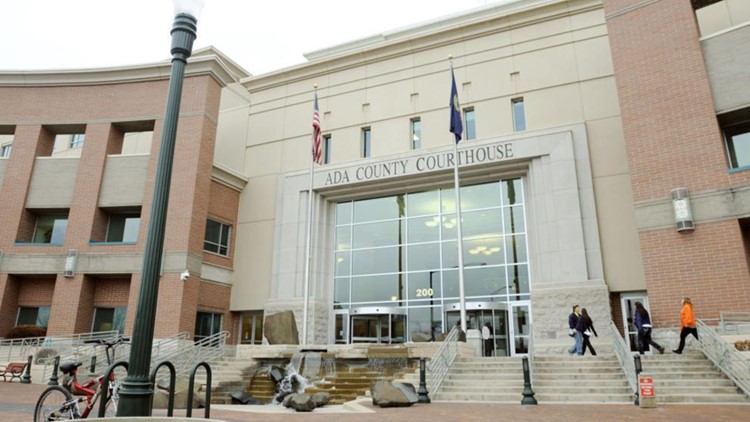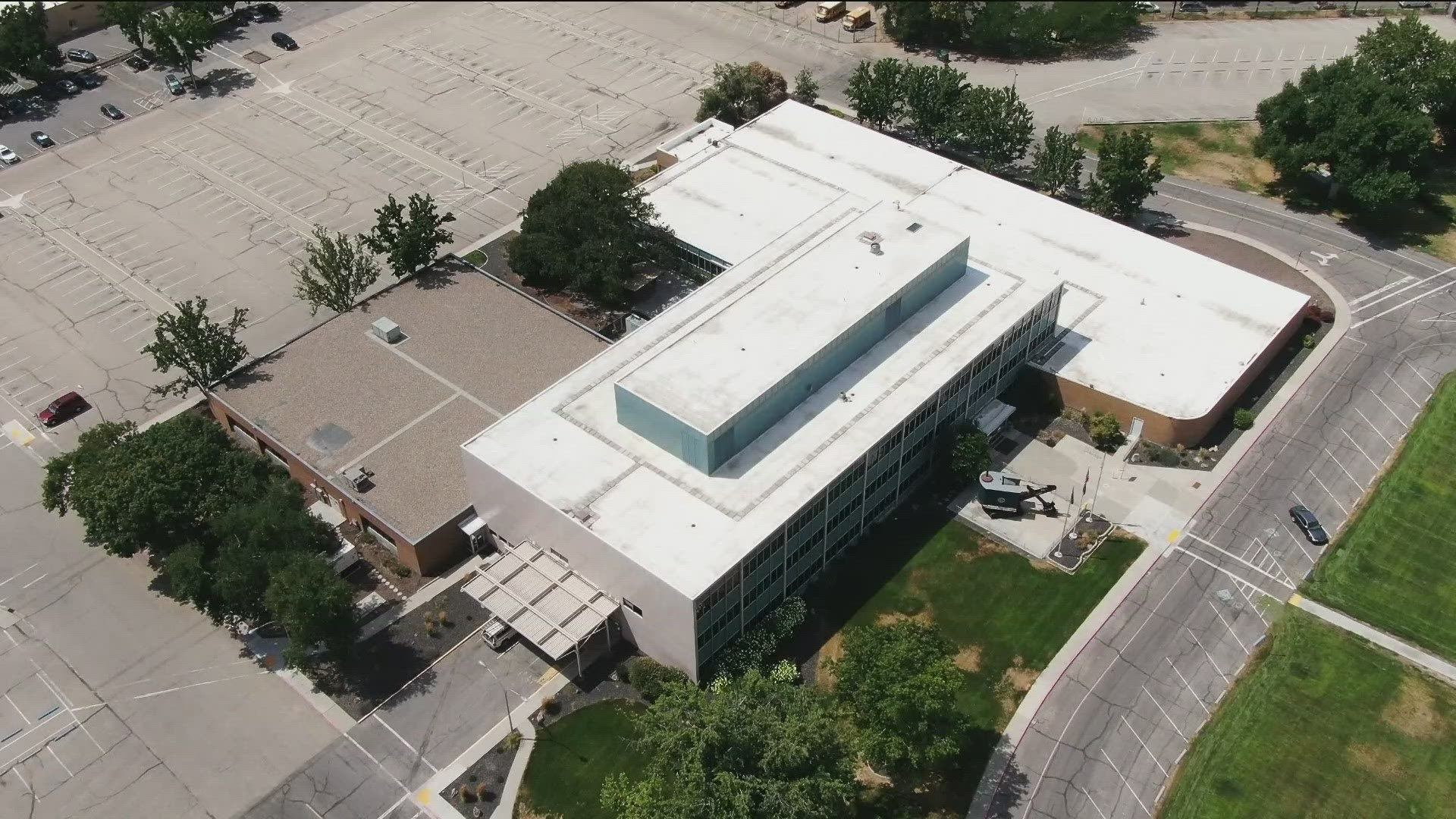BOISE, Idaho — This article originally appeared in the Idaho Press.
Idaho judges are pleading with the state Legislature for additional resources in their districts due to a backlog of cases, large caseloads, few applicants and increased population growth.
Steven Hippler, the administrative district judge for the 4th District Court, asked the Judiciary Committee on Wednesday for one additional district judge in Elmore County accompanied by a court reporter and two magistrate judges for Ada County.
Hippler cited the strain judges and administrative clerks are under with the extreme backlog of cases that are overpowering the courts, leaving judges with large caseloads.
“We seemingly have a rise in violent crime with an unprecedented 19 open homicide cases in Ada County. It typically averages two or three,” Hippler said.
Additionally, criminal judges have large dockets, only allowing for a couple minutes to meet with a defendant.
Hippler also commented on the backlog occurring in Elmore County, with judges taking on large workloads and becoming burned out as a result.
“We’ve simply not provided Elmore with the service it deserves,” he said.
Hippler elaborated that his district tried 11 felony cases in one week, trying to clear the backlog of individuals sitting in custody while waiting for a trial.
Dane Watkins, administrative district judge in the 7th District Court, specified the increased responsibility of trial court administrators, who provide education, training and assistance to elected clerks, assist on security of every courthouse and are asked to provide reports on civil and criminal filings, judge recusals and disqualifications.
The trial court administrator is also involved in technology and the functionality for parties trying cases in courtrooms, and travels to conduct stakeholder meetings, which amounts to a lot of time and miles, Watkins said.
“All of these duties and many more are on the shoulders of trial court administrators. And, over the recent years with increasing demands, with assistance or deputy trial court administrators, it would allow our trial court administrators to breathe,” Watkins said.
In addition, judicial districts are also facing a shortage of applications, making it hard to fill the spots they require.
Jeff Brudie, a retired district judge from the 2nd District Court and executive director for the Idaho Judicial Council, said the council prefers to send the governor a list of four judges it recommends for appointment through narrowing down a list of applicants, but in some instances, it has have only received four applicants total, and sent the governor a list of only two applicants.
Brudie also said there were only three applicants for his position when he retired nearly a month ago, citing wages and trying to develop non-partisan campaigns for judges as a central issue when finding applicants.
“It is very difficult for judges to conceive having to put that kind of an election thing together and run in that time period, a nonpartisan election really at the height of partisanship, which was the primary election time, and so those are the challenges that I think we’re facing,” Brudie said.
On Friday, the Judicial Council presented that it has used on average 82% of its appropriations or council needs from 2018-2021. Brudie asked the Joint Finance-Appropriations Committee for the same amount of funding as last year for 2023, $130,800, to adequately help alleviate the strain it’s currently under.
Additionally, the Guardian ad Litem Program, a grant program that focuses particularly on funding guardians for child protection cases, asked the committee for an extra $420,000 to help fund the executive director position within each judicial district.
This article originally appeared in the Idaho Press, read more on IdahoPress.com.
Watch more Local News:
See the latest news from around the Treasure Valley and the Gem State in our YouTube playlist:



